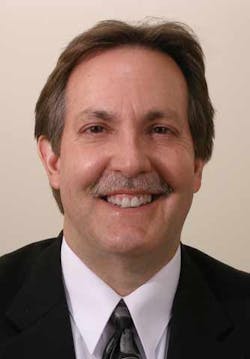Effective management
Two young entrepreneurs each started a retread shop in the same city. One expanded his shop into a smoothly run organization that provided new tires, brake and front-end work and other allied services. He eventually moved into wholesale, commercial and retail sales as well.
The other young fellow found the job of running his shop too much for him, and he spent most of his time retreading tires along with his employees. He soon went out of business.
Why did one retreader succeed while the other failed? Both were ambitious. Both worked hard.
The most successful businessmen know the answer to that question. One of the retreaders was a manager who got things done through other people and reserved his own time for thinking and planning. The other was a darn good retreader who felt he had to do the job himself or it wouldn’t be done right.
The first young man understood management. The second didn’t.
Fifty years ago, this story ran in Modern Tire Dealer as part of a special issue on the importance of good management. The late Fred Dresdale was getting ready to preside over the National Tire Dealers and Retreaders Association for one year. He was convinced that professional management was the answer to most of the problems encountered by independent tire dealers.
His street cred was impressive. As co-owner of Daleley Tire Service in Monsey, N.Y., he racked up $1 million in annual sales. That’s $7.6 million in 2013 dollars, or close to four times what the average tire dealer makes today.
“Every so often, I get the urge to help out in the plant,” he said. “Maybe change a tire or perform some job in the retread shop. When I get these urges, I try to remind myself that performing the task would take time from my main purpose — that of managing my business.”
Successful managers don’t have to share the same style of managing. Of a tire dealer’s many responsibilities, one of the most important in Dresdale’s opinion was merchandising. He spent a considerable part of each day planning ad and promotional campaigns because, as he said in October 1963, “advertising and promotion should be planned months ahead.” As an example, he said a campaign to promote winter tires in August was planned in June.
Authors of “The One Minute Manager” put a time stamp on successful management. Ken Blanchard, a Ph.D., and Spencer Johnson, an M.D., say effective managers “manage themselves and the people they work with so that both the organization and the people profit from their presence.”
Before you belittle their credentials, know this: No less a tire dealer than Dan Hennelly embraces the book’s philosophy. Dan and his wife, Diane, are co-owners of Hennelly Tire & Auto Inc. in Fort Lauderdale, Fla. They grew their The Tire Choice & Total Car Care chain from one store to 35 in only nine years.
Oh, and they are winners of the 2013 MTD Tire Dealer of the Year Award. Executives from Michelin North America Inc. and Wal-Mart Stores Inc. also have benefited from “The One Minute Manager.”
The book reveals three “secrets” to one-minute management:
1. Goal setting. It is important that everyone should know what is expected of them.
2. Praise. The goal here is to encourage people to reach their full potential by pointing out what they are doing right.
3. Reprimands. In order to make sure employees take responsibility for their actions, a one-minute manager privately calls out people when they make mistakes. The scolding is performance-oriented and never personal.
In summary, effective managers need to be transparent with their goals and feedback. “Goals begin behaviors,” say the authors. “Consequences maintain behaviors.”
As their business has grown, the Hennellys have found it necessary to give up running the day-to-day operations of their stores and delegate responsibility to others. As Diane says, if she and Dan had to do it over again, they would have hired a couple of right-hand people from the start instead of trying to do everything themselves.
They’ve learned their lesson. As they prepare for their next growth spurt, the Hennellys are already preparing to add more managers.
On the eve of the SEMA (Specialty Equipment Market Association) Show in Las Vegas, I thought it appropriate to run the same story we ran for the 1963 show. Focusing on good management never grows old. ■
If you have questions or comments, please email me at [email protected].
